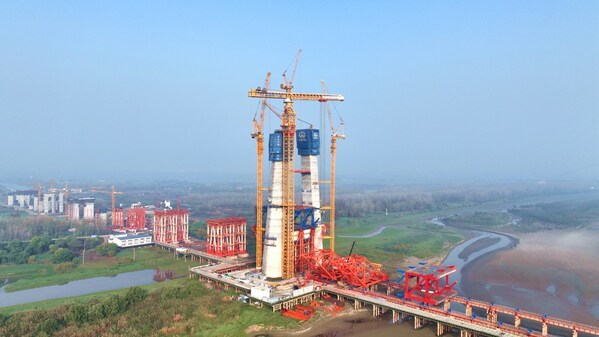NANNING, China, Sept. 28, 2024 /PRNewswire/ -- A news report from Beijing Review:
Viet Nam's aromatic Trung Nguyen coffee, Malaysia's Musang King durian, Thailand's fragrant jasmine rice and Laos' refreshing beer—what do they all have in common?
The answer is they've all made an entrance into the vast Chinese market through the China-ASEAN Expo (CAEXPO), earning rave reviews from delighted consumers.
On September 24, the 21st CAEXPO and China-ASEAN Business and Investment Summit kicked off in Nanning, Guangxi Zhuang Autonomous Region. Like a foodie's fantasy come true and a business bonanza wrapped into one, the expo promised not just to tantalize taste buds but also to turbocharge trade ties between China and its Southeast Asian neighbors.
In addressing the opening ceremony, Chinese Vice Premier Ding Xuexiang said interactions between China and ASEAN have served as the most successful and dynamic model of cooperation in the Asia-Pacific region, and are a vivid example of the building of a community with a shared future for humanity.
Along with the flourishing ties, the expo has become an important supplement to the 10 Plus One cooperation framework between China and ASEAN, providing strong support for regional high-quality development, Luo Yongkun, Deputy Director of the Institute of Southeast Asia and Oceania Studies at the China Institutes of Contemporary International Relations, told Beijing Review.
The expo has been standing as a testament to the enduring friendship, cooperation and shared prosperity between China and ASEAN countries over the years, Kao Kim Hourn, Secretary General of ASEAN, said at the opening ceremony, adding that since its inception in 2004, the event has evolved into an important platform for dialogue, cooperation and development, covering sectors such as infrastructure, agriculture, technology, education and tourism.
"China considers ASEAN a priority in its neighborhood diplomacy and a key region in high-quality Belt and Road cooperation," Ding said. "ASEAN countries, on their part, see in China a trustworthy and close partner."
The shared values of peace, cooperation and mutual respect between China and ASEAN form the foundation of their partnership, Vongsey Vissoth, Deputy Prime Minister of Cambodia, said, adding he believes that the two sides can achieve more fruitful results through their cooperation in trade and economy, with the China-ASEAN Free Trade Area bringing new opportunities.
China has been ASEAN's largest trading partner for 15 consecutive years, while ASEAN has been China's top trading partner since 2020. The cumulative two-way investment has exceeded $400 billion, according to China's Ministry of Commerce.
The CAEXPO has made important contributions to the economic integration between ASEAN and China, facilitating investment flows and cross-border economic opportunities, laying the foundation for building a more connected, resilient and dynamic region, Kao said.
In 2010, the China-ASEAN Free Trade Area was officially launched, opening a channel for ASEAN enterprises to gain more efficient and convenient access to the Chinese market.
China's Vice Minister of Commerce Li Fei said mutually beneficial cooperation between China and ASEAN countries has reached new levels.
Bilateral economic and trade cooperation has continued to upgrade over the years, with positive progress achieved in negotiations for version 3.0 of the China-ASEAN Free Trade Area, he added.
As early as 2015, China and ASEAN initiated the construction of the China-ASEAN Information Harbor to cultivate new drivers of economic development. Today, nearly 20 projects across nine ASEAN countries in fields such as digital government, digital industries and new communications have been conducted under the framework, Luo said.
"We need to leverage the harbor to promote digital connectivity and information sharing, and work for a digital Silk Road," Ding said in his speech.
At this year's CAEXPO, a new section was conducted to highlight strategic emerging industries, showcasing the latest progresses and technologies in fields such as digital technology, new energy and intelligent connected vehicles.
Leading Chinese green technology companies are also working closely with ASEAN enterprises and investing in new facilities to produce innovative and locally adapted products, contributing to ASEAN's green transition.
The ongoing efforts to advance the China-ASEAN Free Trade Area 3.0 will lead to a broader opening up in investment and services trade, Lei Xiaohua, a researcher with the Southeast Asia Research Institute at the Guangxi Academy of Social Sciences, said, adding that the CAEXPO will be endowed with a new mission in future regional industrial and supply chain cooperation.











